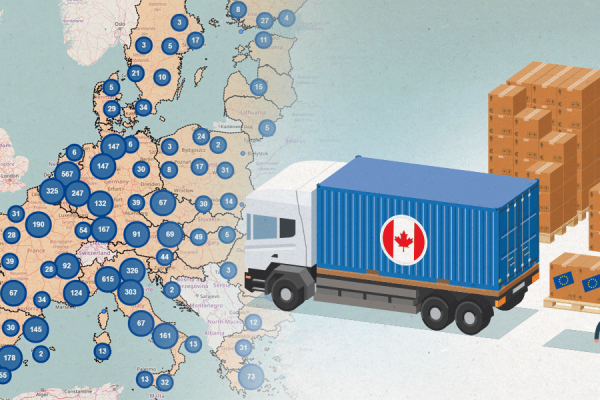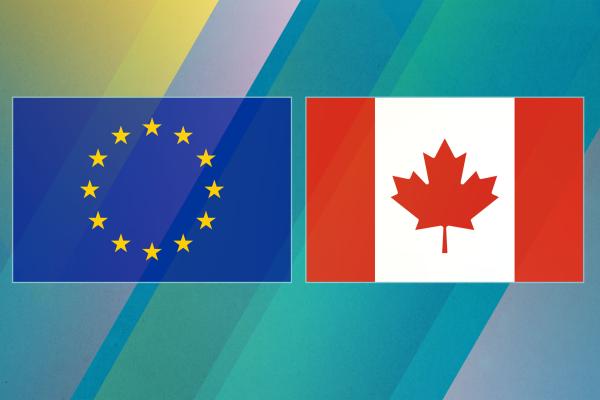- Country or region
- Canada
- Trade topics
- Negotiations and agreements
The EU-Canada Comprehensive Economic and Trade Agreement (CETA) is a progressive trade agreement between the EU and Canada. It entered into force provisionally in 2017, meaning that most of the chapters of the agreement now apply. The parts which are not yet in force can be consulted here.
All national (and in some cases regional) parliaments in EU countries need to approve CETA before it can take full effect.
Key milestones on the road to an agreement:
- 2007: Launch of a joint study between the EU and Canada to examine the costs and benefits of pursuing a closer economic partnership.
- 2009: Official launch of the negotiations.
- 2013: Canada and EU announce an agreement in principle.
- 2014: Conclusion of the negotiations.
- 2016: The agreement is signed during the EU-Canada Summit.
- 2016: The European Council ratifies the provisional application of CETA.
- 2017: The European Parliament approves CETA.
- 21 September 2017: CETA enters into force provisionally.
- 2018: The first Joint Committee under CETA is held, in Montréal.
Currently, 17 EU Member States have completed their national ratification processes for CETA. 10 EU Member States still need to ratify CETA at national level: Belgium, Bulgaria, Cyprus, France, Greece, Hungary, Ireland, Italy, Poland and Slovenia.
The benefits of CETA include the following:
- CETA eliminates duties on 99% of all tariff lines, of which 98% were scrapped when it it provisionally entered into force.
- CETA protects the EU’s geographical indications.
- CETA improves and secures EU companies’ access to the Canadian services market.
About the agreement
The full text of the agreement with chapter summaries in plain English.
The EU and Canada meet annually in bilateral summits and in the committees and dialogues set up by the agreements to review a range of issues relating to EU-Canada economic and trade relations.
Find out more about the EU-Canada Comprehensive Economic and Trade Agreement (CETA).
What's CETA and what does it accomplish? The EU-Canada trade deal explained in plain English.
Information for businesses
EU-Canada Trade in your town

See detailed data on companies exporting from each European town to Canada.

Schärf Coffee is a family business which operates over 300 coffee shops in 23 countries under the Coffee shop Company brand, supplying them with coffee from Austria. Schärf uses only premium high-grown Arabica beans for its coffees, sourced from the best coffee growing areas around the globe.
Latest news
Today, the EU and Canada adopted a Mutual Recognition Agreement (MRA) on the professional qualifications of architects - the first bilateral MRA for professional qualifications to be concluded by the EU.
Today the European Commission proposed new rules – negotiated with Canada – to help small- and medium-sized enterprises (SMEs) use investment dispute resolution under the Comprehensive Economic and Trade Agreement (CETA).
Today, Commission Executive Vice-President Valdis Dombrovskis and Canadian Minister for Export Promotion, International Trade and Economic Development Mary Ng co-chaired the fourth Joint Committee of CETA.



